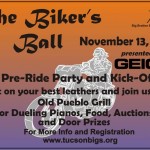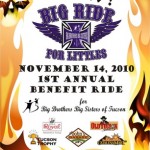REPRINTED FROM POLICEONE NEWS
Regardless of where you are in your law enforcement career, there’s something that motivates you — or de-motivates you — to do the job the way you are doing it. Some possible motivators are:
• striving for promotion
• having a good boss or good working conditions
• hitting specific job performance expectations (i.e., stats)
• enjoying the contentment that comes from doing a good job
• needing to do well enough to keep your present assignment
Or if it’s a matter of de-motivation, maybe:
• you’re tired of your good work being unappreciated
• you’ve had enough of banging your head against the wall that stands between you and that promotion you know you deserve
• you’ve got some justified cynicism
• you feel a lack of support from the community
• your chain of command, or someone in it, doesn’t have your respect
Each of those examples are righteously justifiable motivators (or de-motivators). You can probably think of guys and gals who fit each. Maybe a few fit you?
Insufficient Ethical Frameworks
Many motivators/de-motivators in police work are insufficient ethical frameworks to support and maintain a healthy long-term work (and life) disposition. This can be a compounding problem, because if a fluctuating attitude about your job is the primary determinant of how you perform your job, it will be the circumstances you are under at the time — and not core principles that you live by — that control what you do and how you do it. Furthermore, since we are really not capable of compartmentalizing this type of thinking, other aspects of your life outside of work can be similarly affected. Personal wellness and happiness, a secure and balanced home life, and vital relationships with others (both at work and beyond work) can be compromised too. With the wrong thing motivating or de-motivating you, those things can be at risk.
If what motivates/de-motivates you as a cop is based on something transactional (in other words, based upon giving or getting something in return), you may be setting yourself up for disappointment, and ultimately, some level of dysfunction. Transactional motivators are those in which there is an expectation for certain results to come to you because of something that you do or don’t do.
For example: “If I do a good job on this case, I can use it to help make detectives” or “if I go the extra mile for my demanding sergeant, he’ll lay off” or “as long as I get my forty movers (rolling traffic cites) for the month, I’ll keep my motors assignment” or… you get the idea. These are all transactional motivators. Similarly, transactional de-motivators can be things like not wanting to produce because of lousy work conditions, or even, “Why bother busting my hump? My paycheck will be the same regardless.”
Either as motivators or de-motivators, these kinds of perspectives can ultimately lead to an emotional dead end. Like a stiff drink, they may provide some short term relief or satisfaction, but they can also lead to ruin. This is primarily true because by entering into this kind of thinking, the principles and core values you live by can take a back seat to situations and events that are often beyond your control. And since our profession is the ultimate in workplace paradoxes, this is especially true for law enforcement.
The noble ideals that our corps rightfully claims — things like truth, justice, fidelity and courage, often collide with the realities of injustice, corruption, systematic dysfunction, and treachery. And that’s just inside our walls. What we internally believe about truth, about justice, fidelity, and the like is not always played out on the stage in front of us. After seeing this over and over again, our commitment to our principles can really take a hit. Transactional thinking can start eating away at our core values. After a while, instead of being the predictable white knights of life’s chessboard, we can allow ourselves to become mere pawns of circumstance.
The Cancer of Compromise
When you allow your core values to be up for barter, that is to say, when you are willing to compromise how you respond to what you believe in based upon what happens, you are exposing your flank. If your principles can be compromised for the sake of temporal results at work, you’d be surprised what can get inside your armor. The things you call principles may cease to be, as they’re slowly replaced by situationally-based dependencies.
Principles are so-called because they are applied universally. Too many people (and particularly, law enforcement “leaders” it frequently seems) want to selectively apply what they call principles to a situation, but it’s dependent upon the situation they’re dealing with at the time. In doing so, their ethical framework changes from being principle or virtue based, to being situationally based. These are really two opposing philosophical paradigms (duty or virtue ethicism, i.e., principle-based thinking, versus consequentialism, i.e., “the ends justify the means” thinking). It’s easy to claim to live by a set of principles, virtues, or core values, but unless they are universally applied — regardless of the situation — the cancer of compromise will be creeping into your armor and before you know it you and your values will be changing for the worse.
Because of this, all of us in law enforcement need to make up our minds about what motivates us. In fulfilling our role as guardians of the law, we need to decide for ourselves if there are indeed things that are fundamentally right, and things that are fundamentally wrong. In other words, is there a moral “true north”, or is truth itself relative and dependent? Aspiring to principled living, virtues, and core values, especially as a cop, means trusting in a true north — right and wrong — to guide you. Trying to apply principles situationally is like trying to find true north with a weathervane.
Why Avoid Situationally-based Ethics?
Law enforcement is a profession full of high purpose. Universal principles and immutable core values are our best motivators, and the best means for fulfilling our vital role. When you decide to perform your work duties out of a motivation that cannot be swayed by this-for-that reciprocities (be them positive or negative) your work life just gets simpler. Also, you’ll be less prone to be emotionally buffeted by whatever happens around you, good or bad. The stuff that gets under your skin now, won’t.
In fact, our job may be the best one out there to stay wedded to our core values. That’s because, unlike other work, most all the real power and authority, where values are most important, is exerted at our lowest hierarchical levels. The ‘Brass’ mostly stay in their offices and then go home at night. Yet even the most junior cop, once he hits the street, is the one out there independently implementing our government’s greatest power and authority. Will you do so based upon what you believe in and the honor of your role, or will you let the circumstances and transactional thinking decide these things for you?
Doing the right thing for the right reason regardless of the situation avoids hypocrisy and makes you authentic. It covers your flank, guards your heart, and regardless of what others who live transactionally might be thinking, saying, or doing — ultimately, it puts you in line for true success.
Also, it’s a great model for your kids, and maybe even your boss.
So, decide what you believe about your job and your role in society, and then live it. You’ll soon see that the things that used to affect you when you worked transactionally, won’t. Principle-based motivations will keep you above the fray. And more than likely, you’ll find that over the long haul, things will start working out for you for the better. Transactionally speaking, living a principled life just seems to do that.
Now that’s a great motivator.
About the Author
Dave Edmonds, a patrol captain at Sonoma County (Calif.) Sheriff’s Office, is a 27-year law enforcement veteran. Captain Edmonds writes about the cop culture and winning at work and in life. He welcomes your feedback at leo@360armor.org.
About the author
P1 First Person essays are the place where P1 Members candidly share their own unique view of the world. This is a platform from which our members can share their own personal insights on issues confronting cops today, as well as opinions, observations, and advice on living life behind the thin blue line. Want to share your own perspective with other P1 Members? Send us an e-mail with your story.

